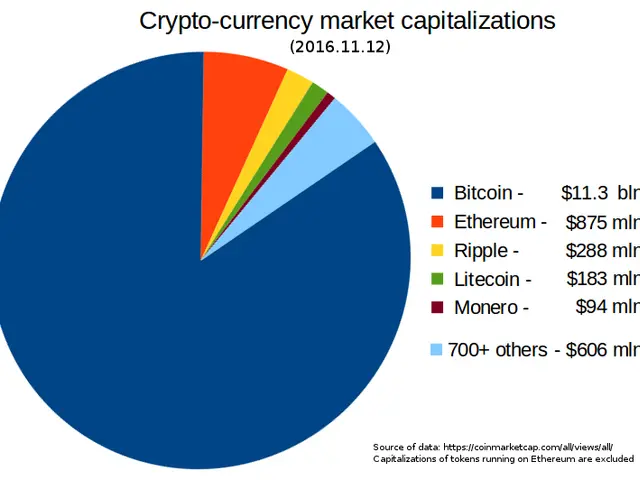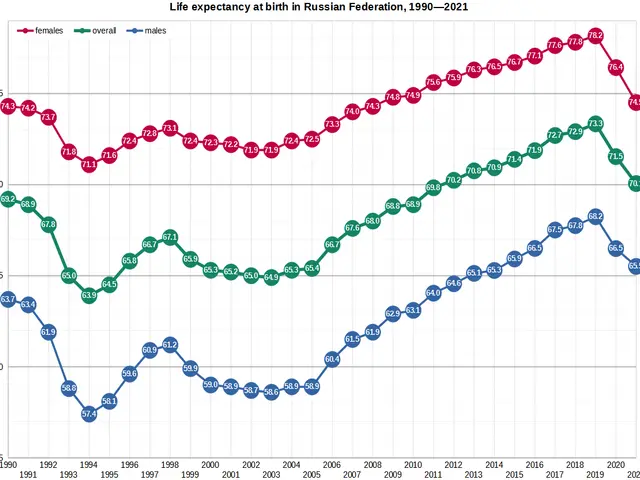Trump's proposed budget reduces rental assistance by 40%, offering states the option to patch the void if they deem necessary.
Unapologetic Spill:
Prez Trump's latest budget proposal, the "Make America Scrooge Again" plan, aims to slash federal rental aid, leaving millions of Americans struggling to afford a roof over their heads. This ain't no joke - the Trump administration is proposing to axe approximately 40% of rental aid for folks in need, claiming the current system is dysfunctional.
The Department of Housing and Urban Development (HUD) is in the crosshairs, with the White House plan to effectively end Section 8 and other housing voucher programs. If you're wondering where that money's gonna go, it's off to the states "to design their own rental assistance programs based on their unique needs and preferences."
But wait, there's more! The budget also puts a two-year cap on aid for able-bodied adults to make sure the elderly and disabled get their fair share. They even found some cash for housing grants for young people aging out of foster care.
Secretary of HUD Scott Turner called it a "bold" move, claiming the aid programs have become "too bloated and bureaucratic to efficiently function." The plan comes at a time when nearly half of all renters are considered cost-burdened, and homelessness is at record high levels. Advocates warn this move could push many struggling Americans into homelessness.
You might be thinking, "Awww hell, it's just a proposal - Congress will sort it out." But with lawmakers under pressure to find savings for Trump's bigger agenda, it's no guarantee. Some congressional Republicans have already targeted healthcare and food aid for next year's budget, but Washington insiders say they don't see Congress going after housing programs.
So, what happens if the states take control of the HUD aid spending? Well, they can pitch in with their own cash to keep the same number of people covered, but advocates warn this would be disruptive for both tenants and landlords. And if the states don't have the funds, it's boomtown for landlords, while the tenant's world comes crashing down.
The budget also proposal to shrink HUD funding for homelessness by 12% and put a two-year cap on people's eligibility for aid. It also wants to redirect homelessness funding from permanent housing to shelters and shorter-term housing. Nasty move, right?
Homelessness advocate Ann Oliva called it "concerning" because "homelessness is a local issue." States simply don't have the infrastructure or expertise to ensure that homelessness funding goes where it's most effective. The irony is thick - Trump claims he's making America great again, but this move would make things much worse for the most vulnerable Americans.
Some conservatives, like Kevin Corinth from the American Enterprise Institute, maintain that these federal housing programs are unfair. They argue that people should only get aid when they truly need it and not for extended periods. They want to help people through other benefits, like tax credits. Housing Secretary Scott Turner even said the goal is to "get people off subsidies and live a life of self-sustainability."
While deep cuts to HUD's budget might not happen, the proposal raises the question: Are federal housing programs truly fair? In times of scarcity, social safety nets can indeed inflate prices for everyone. But at what cost? Letting folks struggle without aid isn't exactly the American dream.
- The budget proposal, named the "Make America Scrooge Again" plan by President Trump, aims to decrease federal rental aid, potentially leaving millions of Americans unable to afford housing.
- The White House plan includes a significant reduction of around 40% in rental aid, which the Trump administration claims is necessary to address the current system's alleged dysfunction.
- The Department of Housing and Urban Development (HUD) faces potential dissolution with the proposed ending of Section 8 and other housing voucher programs.
- The budget plans to redistribute the saved funds to the states to design their own rental assistance programs, which may be based on their unique needs and preferences.
- The budget also includes a two-year cap on aid for able-bodied adults to prioritize aid for the elderly and the disabled.
- Education on housing grants is provided for young people aging out of foster care, while advocates warn that this move could lead to homelessness for many struggling Americans.
- The proposal comes at a time when homelessness is at record high levels, and a significant portion of renters are considered cost-burdened.
- The budget proposes a 12% decrease in funding for homelessness, a two-year cap on people's eligibility for aid, and a shift in funding from permanent housing to shelters and short-term housing.







